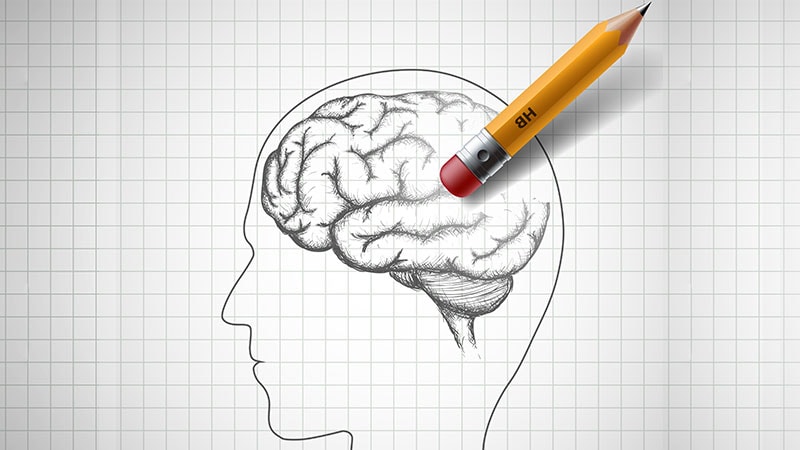New Clinical Criteria Identify a Memory Disorder Often Misdiagnosed as Alzheimer's Disease
Conceptos Básicos
Newly proposed clinical criteria can help distinguish a memory loss disorder, limbic-predominant amnestic neurodegenerative syndrome (LANS), from Alzheimer's disease.
Resumen
The content discusses the publication of proposed clinical criteria for a memory loss disorder called limbic-predominant amnestic neurodegenerative syndrome (LANS), which is often misdiagnosed as Alzheimer's disease (AD).
The key highlights are:
- LANS is a neurological syndrome associated with predominant limbic degeneration, which can have various underlying etiologies, and is distinct from AD.
- The new criteria incorporate core, standard, and advanced features to help classify LANS, including older age, mild clinical syndrome, disproportionate hippocampal atrophy, impaired semantic memory, limbic hypometabolism, absence of endocortical degeneration, and low likelihood of neocortical tau.
- The criteria were validated by applying them to autopsied patients, where LANS patients showed a milder and slower clinical course with more severe temporo-limbic degeneration compared to those with AD.
- Understanding LANS is important as memory symptoms in old age are not always driven by AD, and LANS has a better prognosis than AD.
- The new criteria are ready for clinical use by experts to inform diagnosis, prognosis, and treatment decisions, including anti-amyloid therapy eligibility.
- Advances in biomarkers for underlying proteinopathies like TDP-43 will further help differentiate LANS from AD in the future.
Personalizar resumen
Reescribir con IA
Generar citas
Traducir fuente
A otro idioma
Generar mapa mental
del contenido fuente
Ver fuente
www.medscape.com
New Criteria Flag Memory Disorder Often Mistaken for AD
Estadísticas
"Patients with high likelihoods had a milder and slower clinical course and more severe temporo-limbic degeneration compared to those with low likelihoods."
Citas
"In our clinical work, we see patients whose memory symptoms appear to mimic Alzheimer's disease, but when you look at their brain imaging or biomarkers, it's clear they don't have Alzheimer's. Until now, there has not been a specific medical diagnosis to point to, but now we can offer them some answers."
"A detailed history of the clinical symptoms, which may be supported by neuropsychological testing, with the observation of disproportionate hippocampal atrophy and limbic degeneration on MRI/FDG yields a high confidence in a diagnosis of LANS, where the most likely symptom-driving proteinopathy is TDP-43 and not Alzheimer's associated proteins."
Ideas clave extraídas de
by Megan Brooks a las www.medscape.com 07-24-2024
https://www.medscape.com/viewarticle/new-criteria-distinguish-memory-disorder-often-misdiagnosed-2024a1000dlp
Consultas más profundas
How can the new LANS criteria be effectively implemented in clinical practice to improve diagnosis and management of memory disorders?
The implementation of the new LANS criteria in clinical practice can significantly enhance the diagnosis and management of memory disorders by providing a more precise framework for classifying conditions that mimic Alzheimer's disease (AD) but have distinct underlying pathologies. Neurologists and experts can utilize these criteria to differentiate LANS from AD based on specific features such as older age at evaluation, disproportionate hippocampal atrophy, impaired semantic memory, and limbic hypometabolism. By incorporating core, standard, and advanced features, clinicians can offer patients a more accurate diagnosis and potentially tailor treatments accordingly. The criteria can also aid in prognosis, as LANS is associated with a slower and milder clinical course compared to AD. Additionally, the criteria can inform decisions regarding anti-amyloid treatment eligibility, ensuring that patients receive appropriate interventions based on their specific condition.
What are the potential implications of misdiagnosing LANS as Alzheimer's disease, and how can this be avoided?
Misdiagnosing LANS as Alzheimer's disease can have significant implications for patient care and outcomes. Since LANS progresses more slowly and has a better prognosis than AD, misdiagnosis can lead to inappropriate treatment strategies and unnecessary interventions. Patients with LANS may not benefit from anti-amyloid treatments commonly used for AD, potentially exposing them to risks without therapeutic benefits. Moreover, misdiagnosis can impact clinical trial enrollment, as patients with LANS may be excluded from studies targeting AD-specific mechanisms. To avoid misdiagnosis, clinicians should carefully assess patients presenting with memory symptoms that mimic AD using the newly proposed LANS criteria. By considering features such as disproportionate hippocampal atrophy and limbic degeneration on imaging, clinicians can differentiate LANS from AD and provide patients with more accurate diagnoses and tailored management strategies.
What other emerging biomarkers or imaging techniques could help further differentiate LANS from Alzheimer's disease and other neurodegenerative conditions?
In addition to the criteria proposed for LANS, emerging biomarkers and imaging techniques hold promise for further differentiating LANS from Alzheimer's disease and other neurodegenerative conditions. For instance, in vivo markers of TDP-43, the most likely symptom-driving proteinopathy in LANS, are currently being developed and may soon be available for use in research settings. These markers could help elucidate the underlying molecular etiologies of LANS and associated symptoms, providing valuable insights for diagnosis and management. Furthermore, advancements in biomarkers that differentiate between different proteinopathies, such as tau and amyloid imaging, could aid in distinguishing LANS from AD and other neurodegenerative disorders. Incorporating these emerging biomarkers and imaging techniques into the diagnostic workup can enhance the accuracy of differential diagnoses and support personalized medicine approaches to treatment and care for patients with memory disorders.
0
